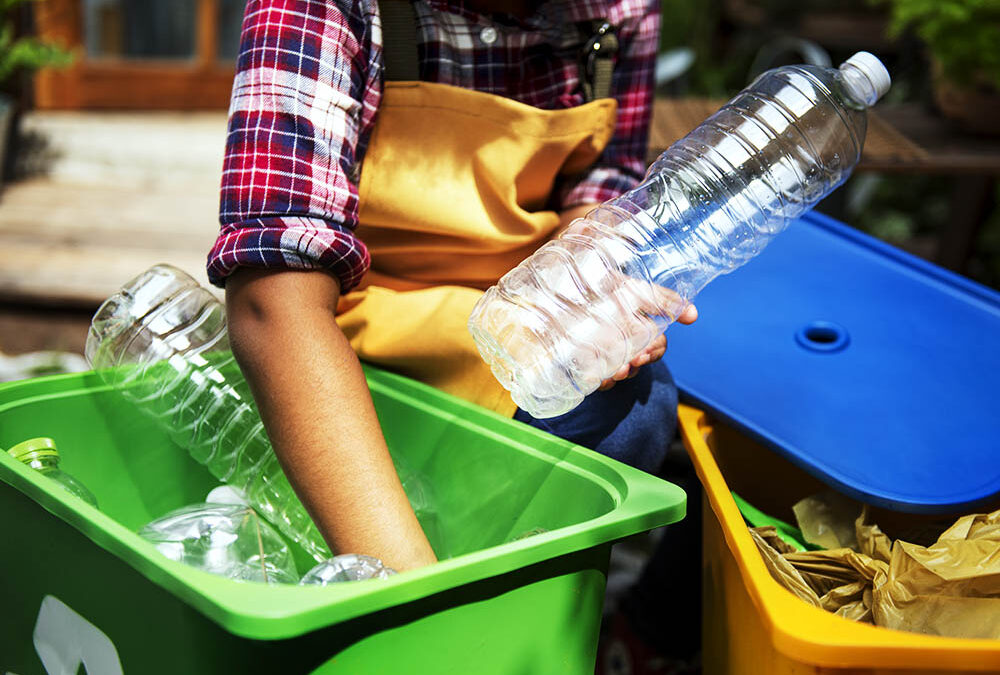The Urgency of Recycling in Today’s World
With the current state of the planet’s environment, it has never been more important to work towards sustainability. Recycling is an essential tool that can help to save the planet by reducing waste pollution, conserving natural resources, and helping to preserve the habitats of thousands of species. Recycling also saves energy and reduces greenhouse gas emissions that contribute to climate change. In this article, we will explore the importance of recycling, discuss the benefits of recycling, and provide advice and tips on how to recycle at home.
The Importance of Recycling
Recycling is significant for many reasons. It helps to reduce waste pollution, which is a significant problem on the planet. When waste is sent to landfill sites, it takes up valuable space, and it can take thousands of years to break down, contributing to environmental pollution. Recycling helps to reduce the amount of waste sent to landfills, which means fewer landfills will be needed in the future.
Recycling also conserves natural resources. Many products, such as plastic bottles, paper, and aluminum cans, can be recycled into new products, reducing the need for new raw materials. By reusing and recycling existing materials, we can help to reduce deforestation, oil drilling, and other forms of natural resource depletion.
Moreover, recycling can help to preserve the habitats of thousands of species. Landfills are often located in habitats that are home to endangered species, and they can cause significant environmental damage. By recycling, we can help to reduce the need for new landfills, which reduces habitat destruction.
Finally, recycling also saves energy and reduces greenhouse gas emissions that contribute to climate change. Recycling aluminum cans, for example, saves 95% of the energy needed to produce new cans from raw materials. Saving energy reduces greenhouse gas emissions, which is essential for mitigating climate change.
Benefits of Recycling
Recycling has numerous benefits for individuals and society as a whole.
One of the primary benefits of recycling is that it saves resources. Recycling helps to reduce the need for new raw materials, which reduces the amount of natural resources that need to be extracted from the earth. It also helps to conserve energy by reducing the amount of energy needed to manufacture new products from raw materials. By reducing the amount of energy and natural resources we use, we can help to reduce our impact on the planet, helping to preserve the environment for future generations.
In addition to saving resources, recycling also helps to reduce waste pollution. When waste is sent to landfill sites, it takes up valuable space and can take thousands of years to break down. In some cases, waste can even contaminate groundwater supplies, making them unsafe for drinking. Recycling helps to reduce the amount of waste sent to landfills, which means fewer landfill sites will be needed in the future.
Recycling also creates jobs and contributes to the economy. The recycling industry employs millions of people worldwide, ranging from recycling facilities to manufacturing plants that use recycled materials. Recycling also reduces the overall cost of waste management, which can result in savings for both individuals and businesses.
Finally, recycling helps to preserve the habitats of thousands of species. Landfills are often located in habitats that are home to endangered species, and they can cause significant environmental damage. By recycling, we can help to reduce the need for new landfills, which reduces habitat destruction.
How to Recycle at Home
Recycling at home is a simple and effective way to help save the planet. Here are some tips for recycling at home:
1. Know what can be recycled: Different materials require different recycling methods, so it’s crucial to know which items can be recycled in your area. Check with your local recycling center to see what materials they accept.
2. Separate recyclables: Separating recyclable materials at home can make it easier to recycle them. Use separate bins or bags for different materials such as plastic, glass, paper, and metal.
3. Rinse containers: Rinse recyclable containers before placing them in the recycling bin to remove any residue or contaminants.
4. Break down cardboard: Large or bulky items, such as cardboard boxes, should be broken down before putting them in the recycling bin.
5. Avoid contamination: Avoid putting non-recyclable materials in the recycling bin, as they can contaminate the entire load.
6. Look for alternatives: Consider using reusable items such as cloth shopping bags, water bottles, and containers, to reduce the amount of waste you produce.
Conclusion
Recycling is more important than ever before in the fight to save the planet’s environment. It reduces waste pollution, conserves natural resources, and reduces energy consumption and greenhouse gas emissions that contribute to climate change. Recycling also creates jobs and contributes to the economy, making it a win-win for both individuals and society. By following the tips and advice given in this article, everyone can do their part at home and contribute towards building a more sustainable future for all.
